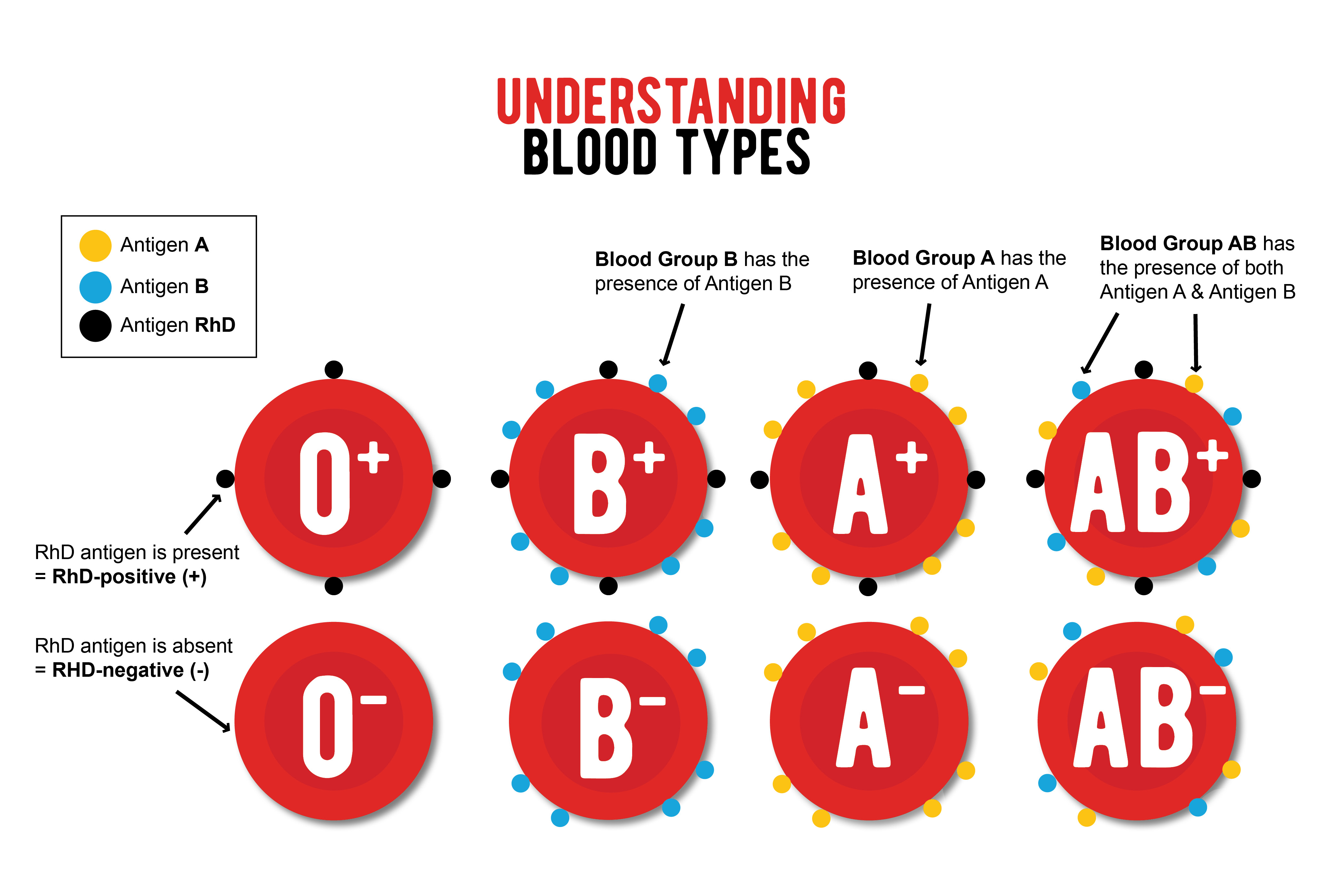

If a person needs a blood transfusion, their blood type must be compatible with that of the donor to avoid complications. Nearly 16 million blood components are transfused each year in the U.S." O positive is the most common, and AB negative is the rarest. For more about plasma donation, visit the plasma donation facts. The universal plasma donor has Type AB blood. O positive red blood cells are not universally compatible to all types, but they are compatible to any red blood cells that are positive (A+, B+, O+, AB+). The universal red cell donor has Type O negative blood. 38 of the population has O positive blood, making it the most common blood type. The need for O+ is high because it is the most frequently occurring blood type (37% of the population). However, the need for O negative blood is the highest because it is used most often during emergencies. Only 7% of the population are O negative. Types O negative and O positive are in high demand. Most people have one of these types: O-positive O-negative A-positive A-negative B-positive B-negative. Minority and diverse populations, therefore, play a critical role in meeting the constant need for blood. Combining these two characteristics yields the eight most common blood types. Type A blood has the A antigen on red blood cells, B. Each is defined by which antigens are present on the surface of red blood cells. These markers communicate with your immune system to keep you healthy. Type O is routinely in short supply and in high demand by hospitals – both because it is the most common blood type and because type O negative blood is the universal blood type needed for emergency transfusions and for immune deficient infants.Īpproximately 45 percent of Caucasians are type O (positive or negative), but 51 percent of African-Americans and 57 percent of Hispanics are type O. There are four main blood groups: A, B, AB and O. blood type O Your blood type is determined by the presence of antigens, or surface markers, on your cells. Why? O negative blood can be used in transfusions for any blood type. Universal donors are those with an O negative blood type.


 0 kommentar(er)
0 kommentar(er)
